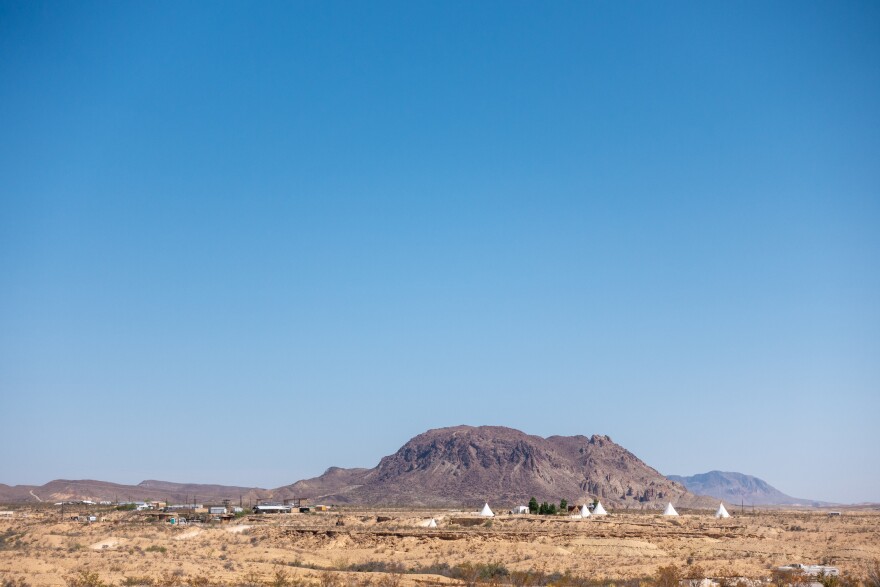In rural Brewster County, the number of Airbnbs and other short-term rentals has exploded in recent years, as landowners have sought to cash in on the growing number of people flocking to Big Bend National Park.
But despite the boom that’s meant for the economy, some in the local tourism industry have become frustrated by what they describe as an unfair taxing system, where some rental owners are paying what they’re supposed to and others are getting away with not paying.
Those frustrations have been simmering for a while now, but local officials are facing mounting pressure to address the problem.
In April, Brewster County commissioners sat down for one of their regular public meetings. The issue of “Hotel Occupancy Taxes,” or “HOT” taxes as they’re often called, wasn’t on the agenda, but Terlingua resident Daryl Eby called in to bring it up. Eby owns Big Bend Vacation Rentals, a company that manages more than 30 short-term rentals in the area.
“It’s well known, and has been well known for quite some time, that one of the largest lodging operators down here has not paid a penny in hotel tax to the county in over two years now,” he told commissioners.
Eby was talking about one of his competitors: the popular glamping-style hotel Basecamp Terlingua, one of the area’s biggest lodging operations. County records show Basecamp hasn’t paid its local HOT taxes since March of 2020.
HOT taxes apply to everything from campsites to hotels and mostly go toward promoting tourism. Both state and local governments can levy these taxes. In Brewster County, property owners pay a 7% rate, which amounts to anywhere from hundreds to tens of thousands of dollars a month depending on a rental’s size.
So when businesses don’t pay, Eby argues, that gives them a competitive edge.
“When some pay the tax and others do not, well, then those that do not are automatically receiving a 7% advantage,” he explained.
Basecamp Terlingua is owned by Jeff Leach, a controversial local character who’s been accused of sexual assault by multiple women, leading to a couple of high profile court cases.
Leach did not respond to Marfa Public Radio’s request for comment for this story, but, in a statement to the Big Bend Sentinel, Leach seemed to claim he has paid his taxes, saying his company has “contributed hundreds and thousands of dollars to HOT tax over the years from various entities we manage.”
Even if Basecamp isn’t paying its taxes, it’s not the only business in the Big Bend choosing not to.
“There’s a lot that aren’t paying,” according to Robert Alvarez, Executive Director of the Brewster County Tourism Council, an entity tasked with promoting tourism in the area.
In an interview, Alvarez broke down the short-term rental numbers, in terms of who’s paying out of all the rentals available in south Brewster County, and how many simply aren’t paying.
“So, 130 on the rolls, 300 estimated out there, and that’s already 170 that aren’t on the rolls,” he said.
Alvarez estimated that the county is losing as much as half a million dollars a year in HOT tax revenue. He said the county is looking into hiring an outside firm to collect unpaid taxes. That may not comfort those frustrated with the situation, but it's not just Brewster County dealing with this problem.
“Communities all across the country are struggling with collecting hotel occupancy taxes,” according to attorney Justin Bragiel, with the trade group Texas Hotel and Lodging Association.
Bragiel said the problem has become all the more challenging since the rise of Airbnb and other sites like it.
Local governments can legally go after rental owners who aren’t paying, Bragiel explained, but that can take time and money that rural communities might not have.
“If you’ve got a lot of small lodging operators, short-term rental operators, you can rack up legal fees pretty quickly,” he said.
According to Eby, some rental owners in South Brewster County are getting fed up with the situation, to the point where they’re even considering their legal options.
“They contact me frequently saying, you know, ‘Can we take any action, can we force the county to do something since they haven't been doing anything on their own?’” he said.
The Brewster County Tourism Council is expected to hear proposals from tax collection firms later this year, but it will ultimately be up to county commissioners to decide exactly how to convince - or force - businesses to pay their HOT taxes.


